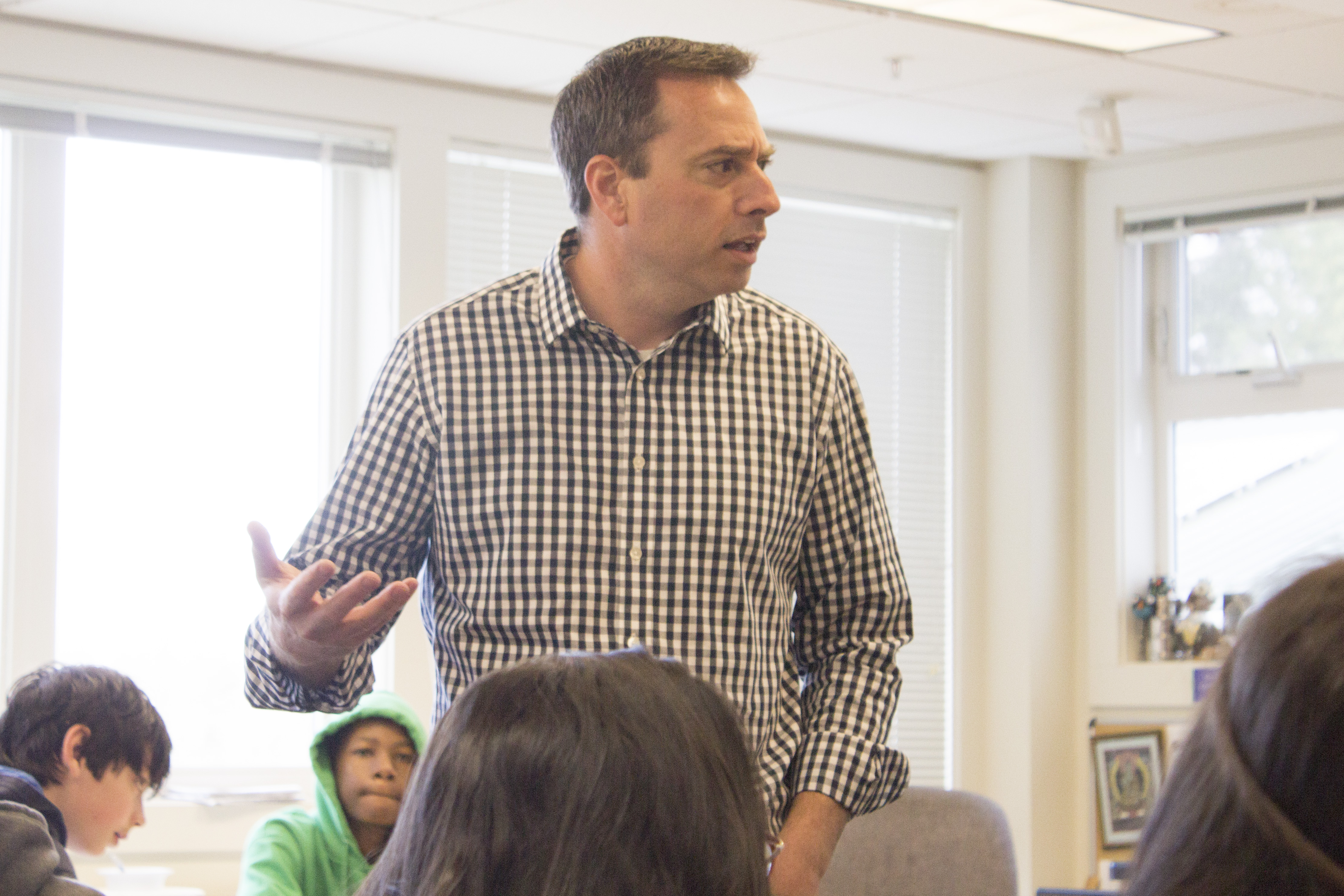- News
Using Ethics in Making Hard Decisions

Can Overlake’s mission statement be in conflict with our student's decision-making?
That’s what middle school students discovered in a recent lesson with MS Head Mike Davidson’s discussion on ethics and values. Students learned the importance of ethical decision-making and how it relates to not only their academics, but their everyday lives.
His decision to lead the ethics lesson came from our Social Emotional Learning (SEL) curriculum which has played a role in student discussions on a range of topics during advisory. “It’s a topic too important to try and teach in a fifteen-minute advisory so I suggested that I teach it too all four grades as part of a class,” says Davidson. “Teaching ethics beyond the idea of empathy and kindness includes a more sophisticated framework.”
Davidson’s lesson started with a conversation around values, and, specifically, how our values may be different from one another. From an SEL perspective, Davidson says that’s fine. “I wanted them to ask themselves, ‘How do I bring my values to bear on difficult decisions?’ Difficult decisions are often easier to understand and take on when they’re reframed as a conflict between two values rather than two actions,” says Davidson.
Breaking into work groups, students were given a framework for ethical decision-making through rules-based (laws), outcome-based (greatest good), and care-base (recognizing needs of the vulnerable and oppressed) frameworks.
How we look at questions through those frameworks might lead you to a different answer, and Davidson says many students were surprised at the decisions they made. “In the end, they weren’t going to have an algorithm for how they would make decisions and what the right decision was, but now they have a framework for making them,” adds Davidson.
And that leads us back to the beginning about our mission statement. Excellence, responsibility, and compassion are Overlake’s institutional values and Davidson says that’s where the conflict comes in decision-making. “Excellence is often in conflict with a compassionate community,” says Davidson. “How do we choose and prioritize values even when they may be in conflict? It means balancing multiple values at the same time.”
Davidson’s goal for the middle schoolers was simple. It’s a lesson that is less academic but a lot more personal that will carry over into adulthood.
